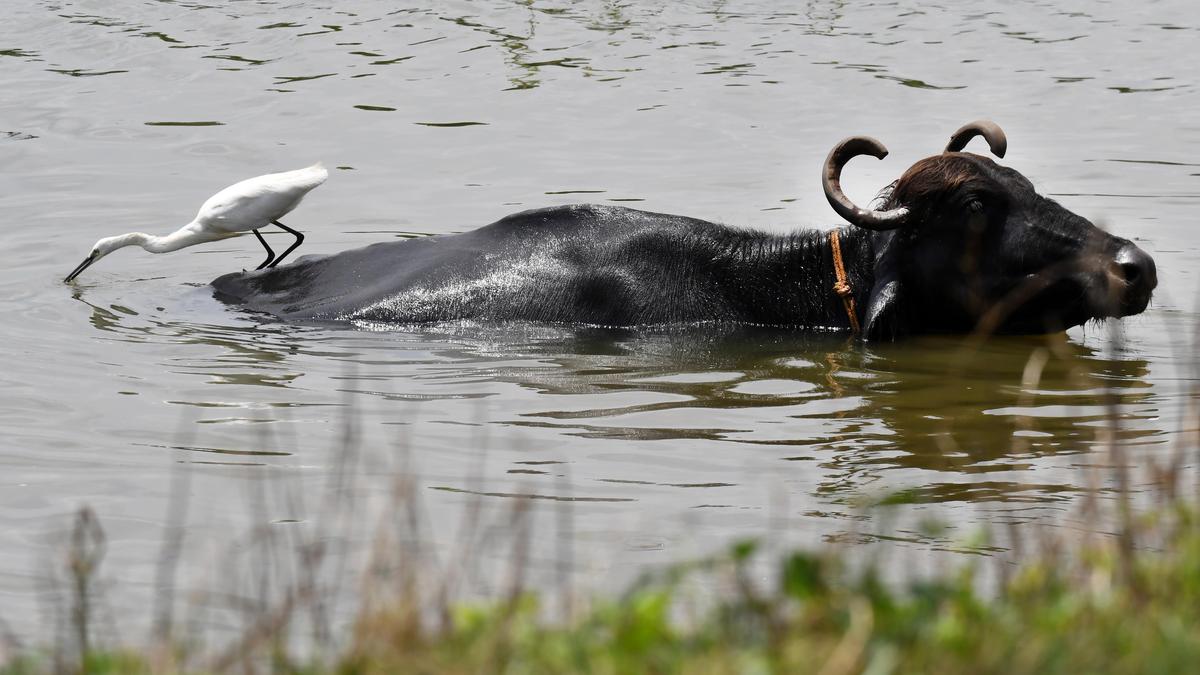Copyright thehindu

In a breakthrough that could change the way India breeds buffaloes and improve dairy productivity, scientists at the National Institute of Animal Nutrition and Physiology (NIANP), Bengaluru, under the Indian Council of Agricultural Research (ICAR), have developed a ready-to-use, egg yolk-free solution – CRYODIL – for preserving buffalo semen for up to 18 months. This is said to be the first time such a product has been developed and tested in India to offer a safer and longer-lasting alternative to traditional methods. The scientists explained that until now, semen from ‘elite’ buffalo bulls was preserved using egg yolk-based solutions. While these semen extenders have been widely used, they come with several limitations. Egg yolk must be fresh, as its shelf life is only a few hours, and its composition varies between eggs, leading to unpredictable results in sperm survival and movement after freezing. Egg yolks can also carry harmful microbes, posing a risk to animal health, and the process of separating the yolk from the egg white is cumbersome. Moreover, egg yolk contains unknown factors that can reduce sperm motility, making successful fertilisation less likely. Although egg-yolk-free extenders are available for cattle in some foreign countries, they are expensive, and until now, no commercially available egg yolk-free extender existed in India for cattle or buffaloes, NIANP officials explained. Freshly collected mammalian semen consists of sperm and seminal plasma, a fluid containing vital components necessary for sperm survival and fertility. During cryopreservation (freezing and storing), semen from one bull, which is usually only 3 to 5 millilitres, is diluted up to 40–50 times to maximise the number of inseminations possible. This dilution reduces the concentration of seminal plasma components, threatening sperm life and fertility. Moreover, most of these components are not commercially available and cannot be synthesised artificially, creating a significant challenge for preserving semen effectively, officials said. To address this, the ICAR-NIANP team explored whether a natural body fluid from the same or similar species could replace egg yolk and supply the necessary components. Their research led them to milk from female cattle or buffaloes. While milk contains caseins and whey proteins, not all components were suitable for buffalo sperm. Casein proteins, for example, did not support sperm viability. After extensive experimentation, the scientists found that purified whey proteins without milk sugars could sustain the viability and motility of buffalo sperm even after freezing. Building on this discovery, the team developed CRYODIL, an egg yolk-free semen extender that is ready to use and has a shelf life of up to 18 months. The product was tested on 24 buffalo bulls, and the results were significant. Semen preserved with CRYODIL showed improved post-thaw sperm movement (how actively sperm can swim after being frozen and thawed, a key factor that determines whether insemination will lead to pregnancy) and viability, which are critical factors for successful fertilisation. In addition to improving semen quality, CRYODIL is cheaper to produce than traditional egg yolk-based extenders. A patent for the product and its preparation method has also been filed. Fertility trials are currently underway at BAIF Development Research Foundation, Uruli Kanchan near Pune, and once completed, the product is expected to be introduced for commercial use in the field.



